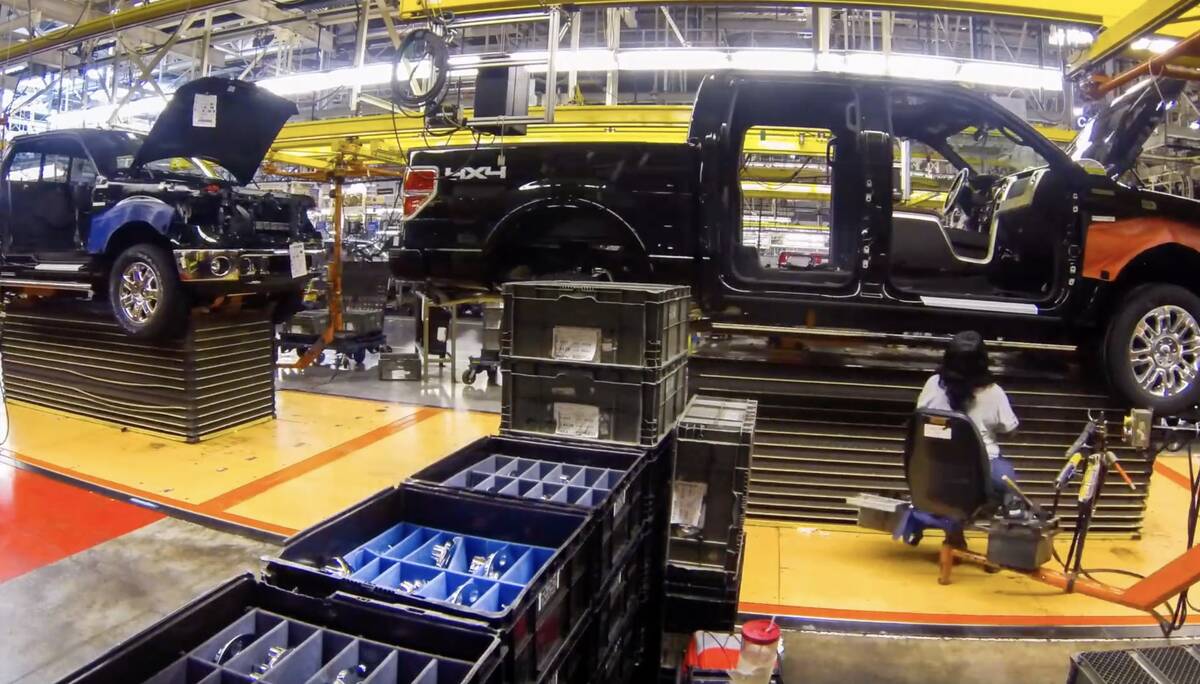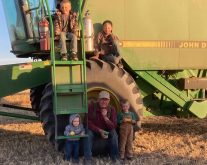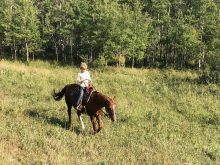When the dust of harvest rolls and clogs up the efficiency of your combine filters, you don’t keep going — you stop and clean or replace the filter. If you spread your fingers open across your face, you are creating body language for the conflict filter clogging up the communication for your farm team.
It’s time to get rid of your negative mindset around conflict.
Drop your hand from covering your face, look up and see the eyeballs of the person who needs to understand your needs, and start calm, respectful conversations with your family and farm team.
Read Also

Is the technology in our vehicles a help or a hindrance?
Not only does new tech allow people to operate vehicles and farm machinery with fewer skills, it also creates more problems for vehicle users when those systems fail, Scott Garvey writes.
Can you embrace the idea and mindset conflict is not bad? Tension in making quick decisions in harvest time or other times of high stress does not have to cause instant blow-ups. The culture of your farm is what you believe to be true (your values), how you behave toward one another, and how you make decisions.
Positive conflict behaviour looks like this:
You express your emotions in a healthy way
“It really frustrates me when you cut so high because the field operator in the fall is going to have issues with the high stubble. Would you please lower your header to this number…?”
Slamming the pickup door and not talking is the way to keep your conflict unhealthy. Use a wide range of labels for how you are feeling or being impacted by other people’s behaviour.
“We go to a lot of work to support you in the field and we really feel valued and appreciated when you make the effort to bring the meal buckets home to the back door as a sign of courtesy to us. Thank-you for being considerate of what we need.”
You create solutions and don’t attack the person
“Wow, that combine is really plugged up, you are such an idiot, why can’t you every learn to slow down?” Yikes!
Practice attacking the issue. “The combine is plugging too much, have you figured out why? Mine is set like this, and this is the speed that’s working for me today. Let’s see what solutions we can work out for the plugging to stop for you.” Lumpy swaths may be operator error, or high winds!
You are willing to reach out to check how others are doing
“How are you doing, are you OK?” is much more helpful than asking “How are you?” Look people in the eye as you listen to their response. Head down, or avoidance of eye contact, is a non-verbal answer things are not OK. Reaching out to others is a positive conflict behaviour. The receiver gets to choose their response, and you as the sender of the message cannot predict the response. Everyone gets to choose if they are going to be kind, calm and respectful. The receiver can also ask for a timeline to be able to process the response rather than swearing, yelling or throwing a shovel in frustration. Bad behaviour is not tolerated on healthy farms. You get the behaviour you accept, so why are you accepting bad language and violent outbursts?
You are willing to adapt
Farmers are masters at adapting to challenges. During the high stress of harvest, you can choose to monitor your physical, emotional and mental health with good choices: rest, good food, encouragement from others, connection to your supportive family and friends, happy radio banter on the two-ways, and positive texting with appreciation. Your language and behaviour set the tone for each long harvest day.
“Being clear is kind,” says Brene Brown, a well-known researcher on vulnerability. Machines don’t talk with words, but they vibrate, clunk and don’t sound well, and you stop. People are not machines. People need to be able to ask for what they need and know their voice is respected and heard. Perhaps it is time to ask your crew, “What’s the most important thing you need today to make it a great harvest day?”
Put yourself in someone else’s shoes
Do you know what it feels like to be over 70 with a tender back and spend 13 hours in a combine seat? Is the grain cart operator clear about what it means when lights are blinking, and you have your auger out? Don’t make assumptions your behaviour is well understood; check in with the other person. Try to imagine what it feels like to be a parent with three active young children trying to keep up with the field demands of harvest and the crew.
The ability to shift your perspective is a huge positive conflict behaviour. As folks age on the farm they may lose confidence in their abilities, especially if the environment is highly charged with blame and bad language. Young people also need positive feedback and constructive comments to help them gain more confidence in completing their tasks well.
Avoiding conflict just allows an issue to grow and the ability for reasonable solutions to wane as time goes on. “Stuffing your anger, hurt, fear or frustration” is the recipe for a volcanic event, also known as a blow-up. Conflict avoidance is not helpful. Ask for time to have a conversation. Make your request for a change in behaviour. Seek permission to create solutions together.
You can change your mindset, thoughts, language and actions. You can set the tone for a healthier culture on your farm. If you need more concrete encouragement on how to do this, listen to my podcasts. Have a safe harvest and encourage the heart of your farm with kindness and appreciation.
















